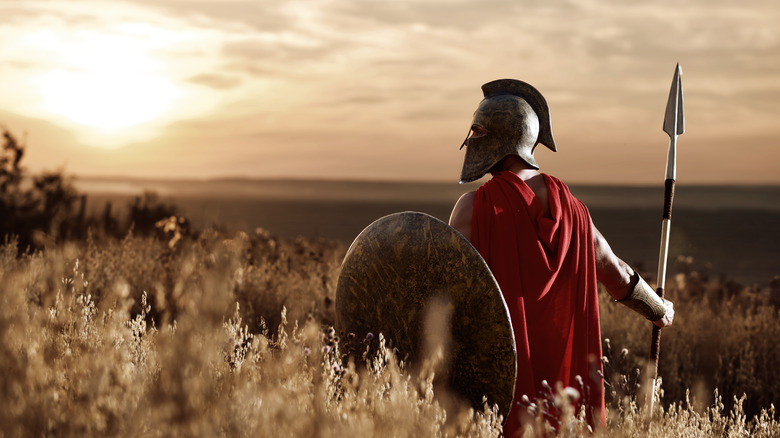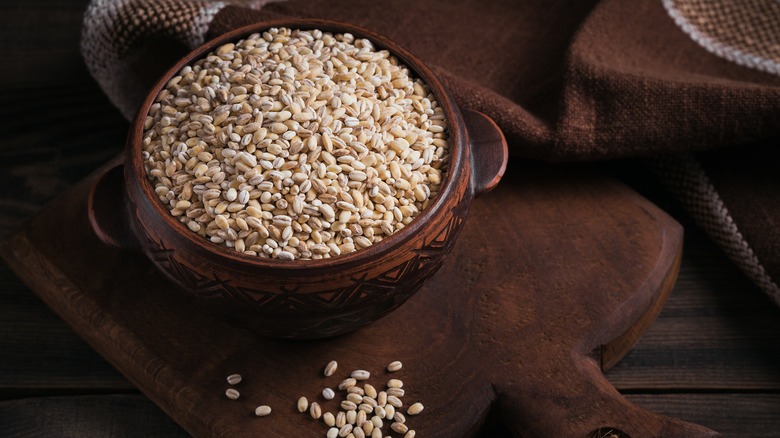The Unexpected Diet Of Ancient Roman Gladiators
Gladiators were the super athletes of ancient Rome, and gladiator fights were a popular diversion of the time. Most gladiators were condemned prisoners or enslaved people whose athletic prowess would be the only thing standing between life and death (per World History). The fighting was brutal and bloody. Stamina and the ability to recover quickly were of utmost importance.
You may expect these endurance athletes to eat a diet heavy in animal products, and why wouldn't you? Since the first caveman roasted an animal over a fire, meat-eating has been linked to virility in men (per Popular Science). However, studies about the diet of Roman gladiators turn that notion on its head.
You may be surprised at what researchers discovered when they examined 2,000-year-old bones found in a mass grave in western Turkey. Evidence of a meat-heavy diet that many people would expect to see in the remains of these endurance athletes from 2,000 years ago didn't appear in their analyses.
Ancient vegans
According to the Archeology Institute of America, when the researchers found the burial site, they learned about the gruesome ways many gladiators died. More importantly, they discovered how they lived, specifically what foods they ate. Scientists compared the gladiators' remains to those of ordinary citizens of the same city and era and found something remarkable.
The Roman gladiators had a diet consisting primarily of beans and complex carbs like wheat and barley. This diet earned them the nickname "barley men" and showed very little evidence of animal products (via National Geographic).
This remarkable finding shows that abstaining from meat can lead to greater endurance for plant-based athletes than those accustomed to the average American diet (per Nutrition Facts). Protein can be found in plant-based foods in varying amounts, and the protein in plants, like in beans, vegetables, legumes, and grains — like barley — are "superior" to the protein in meat (via Center for Nutrition Studies). Most likely, this realization was made by accident in ancient Rome, but it worked to the gladiators' benefit.
Gladiators stayed hydrated with an ancient sports drink
The researchers discovered something else in their studies. The gladiators had a unique way of quenching thirst and staying hydrated — an ancient sports drink if you will. Made using charred plants or bone ash mixed with vinegar, the drink provided a significant amount of calcium to their diet, enabling frequently broken bones to heal faster (via BBC).
The benefits of a meat-free diet for athletes can be seen today. Named one of the "greatest runners of all time," Scott Jurek follows a completely plant-based diet — no eggs, no meat, no fish, and no dairy. He says eliminating animal products from his diet has enabled him to recover faster and go the distance in long races (via Scott Jurek). Many athletes have also discovered the positive effects eating plants has on their performance and the movie "Game Changers" helped spread the word to even more people. Some go vegan or vegetarian while competing, and some have chosen it as a lifestyle.


